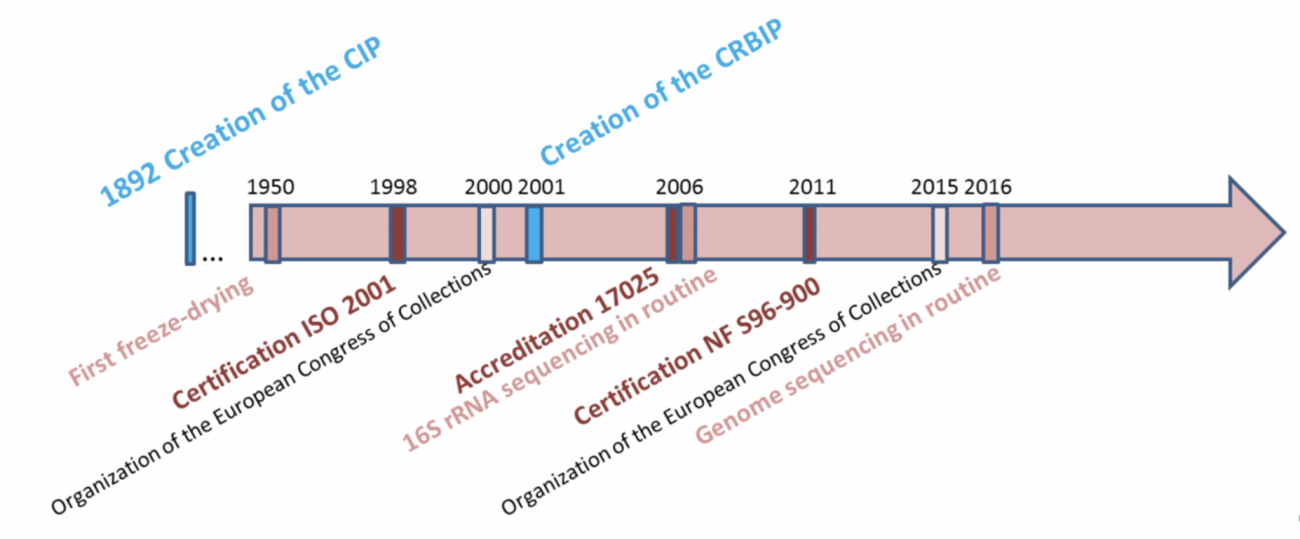About CIP
Presentation
The importance of microbial resources for the present and the future is undeniable in view of their use in a wide variety of fields such as agronomy, food security, the environment, health, and biotechnology. Ensuring biosecurity and ensuring trade traceability are key elements of the future bio-economy as defined in 2007 in the OECD Best Practice Guidelines for Biological Resource Centers.
The Institut Pasteur Collection (CIP) was created by Dr. Binot, who started preserving bacterial strains as early as 1891. Freeze-drying began at the CIP in the 1950s. For more than a century now, locals of the CIP are on the campus of the Institut Pasteur.
The CIP has been able to constantly adapt to meet evolving user needs and current regulatory requirements. It has been certified according to standard NF S 96-900 from 2009 to october 2021. Since march 2023, the CIP is certified according to ISO 9001 : 2015 standard. The CIP is now engaged in the accreditation process for the 20387 Biobanking Standard.
CIP is rich of a beautiful biodiversity with more than 25,000 bacterial strains belonging to 5,500 different species. Since the 50's, the enrichment of the collection has been historically with:
• hospital bacterial strains (due to the proximity of Pasteur Hospital and Paris hospitals),
• bacteria from various National Reference Centers after the retirement of those responsible: Streptococci, Staphylococci, anaerobes, antibiotic resistant strains ...,
• typical strains of newly described bacterial species,
• bacteria from the environment.
The resources of the CIP are accessible via:
CIP-Catalogue : https://catalogue-crbip.pasteur.fr
The strains are preserved by lyophilization or freezing at -80 ° C or at -196 ° C in liquid nitrogen. As much as possible, two different methods of preservation and two types of storage for each strain are carried out in two different places.
Mission
The CIP's mission is to ensure the maintenance and enrichment of the Institut Pasteur's bacteria collection, firstly through collaborations with scientists from the Institut Pasteur and secondly through deposit of strains of French and foreign researchers. The CIP ensures the distribution of bacterial strains, the dissemination of information concerning distributed strains (properties, conservation, identification ...) and develops a research activity.
History

Statistics

Networks
The CIP is part of:
- Pasteur International Bioresources Network (PIBNet)
- European Culture Collections' Organisation (ECCO)
- Microbial Resources Research Infrastructure (MIRRI)
- World Federation for Culture Collections (WFCC)
- World Data Centre for Microorganisms (WDCM)



